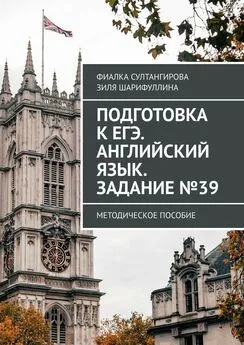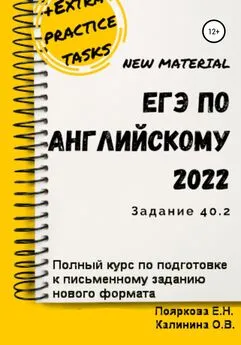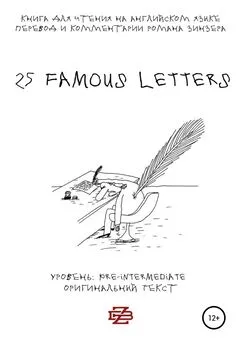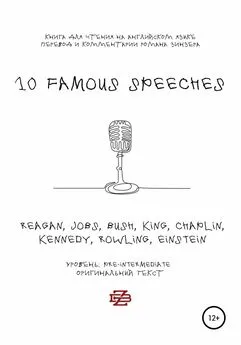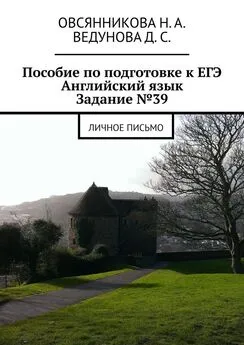Роман Зинзер - Фразовые глаголы для подготовки к ЕГЭ по английскому языку
- Название:Фразовые глаголы для подготовки к ЕГЭ по английскому языку
- Автор:
- Жанр:
- Издательство:неизвестно
- Год:2020
- ISBN:нет данных
- Рейтинг:
- Избранное:Добавить в избранное
-
Отзывы:
-
Ваша оценка:
Роман Зинзер - Фразовые глаголы для подготовки к ЕГЭ по английскому языку краткое содержание
Фразовые глаголы для подготовки к ЕГЭ по английскому языку - читать онлайн бесплатно ознакомительный отрывок
Интервал:
Закладка:
Текст номер два:
Sisters
‘Dear Kathy! Chance made us sisters, hearts made us friends.’ This quote is at the center of a collage of photographs – covering our twenty-something years – that now hangs inmy office. My sister, Susie, made it for me as a wedding present. It probably cost very little to make (she is a starving college student, after all), but it means more to me than any of the more ‘traditional’ wedding presents my husband and I received from family and friends last June. Whenever I look atthe collage, it reminds me of my sister and what a true friend she is.
Susie and I weren’t always close friends. Far from it, in fact. We shared a room for nearly fifteen years when we were younger, and at the time I thought I couldn’t have asked for a worse roommate. She was always around! If we argued and I wanted to go to my room to be alone, she’d follow me right in. If I told her to go away, she’d sayright back, ‘It’s my room, too! And I can be here if I want to.’ I’d consult my mother and she usually agreed with Susie. I suppose being three years younger has its benefits.
When we were kids, she’d ‘borrow’ my dolls without asking. (And no toy was safe in her hands.) When we got older, Susie quit borrowing my toys and started borrowing my clothes. That was the final straw. I couldn’t take it anymore. I begged my parents to let me have a room of my own – preferably one with a lock on the door. The answer was always a resounding ‘no.’ ‘Please?!’ I’d beg. My parents would just shake their heads. They didn’t agree with each other on much, but for some reason they had a united front on this issue.
To crown it all, she had this habit of doing everything I did. Choirs, rock bands, sports teams, dance studios: There was no place where I was safe. ‘She looks up toyou,’ my mom would say. I didn’t care. I just wanted a piece of my life that didn’t involve my little sister. When I complained to my mother, she’d just smile and say, ‘One day you’ll want her around.’ Sure.
It’s strange how mothers have this habit of being right about everything. When I was sixteen and my sister was thirteen, we went through a series of life-changing events together that would forever change our relationship. First, my parents announced that they were divorcing. My dad packed upand moved toan apartment in New Hampshire – more than a half hour drive away from our cozy house in Massachusetts. He bought me my first car and I often went with Susie to his place when we missed him a lot. During those trips we started discussing our troubles and making plans about how to reunite the family again. But a year later, our father met his future second wife and moved again; this time to Indiana. This meant we could only see him once or twice a year, as opposed to once every few weeks. That was hard.
Yet those few months changed my relationship with my sister forever. We started having more heart-to-heart talks as opposed to silly fights. Over time, she became my most cherished friend. It’s not uncommon for us to have three-hour-long telephone conversations about everything or about nothing—just laughing overmemories from childhood or high school.
She’s the only person who’s been throughall of the tough stuff that I’ve been through, and the only person who truly understands me. Susie and I have shared so much. She’s been my roommate, my friend, and my partner in crime. We’ve done plays together, gone to amusement parks, sang, and taken long road trips together. We’ve laughed until our sides hurt, and wiped awayeach others’ tears.
Even though distance separates us now, we’re closer than ever. Sisters share a special bond. They’ve seen all of your most embarrassing moments. They know your deepest, darkest secrets. Most importantly, they love you unconditionally. I’m lucky to be able to say that my little sister is my best friend. I only wish everyone could be so fortunate.
Третий текст:
Llandudno
Llandudno is truly a fine and handsome place, built ona generously proportioned bay and lined along its broad front with a huddle of prim but gracious nineteenth- century hotels that reminded me in the fading light of a lineup of Victorian nannies. Llandudno was purpose-built as a resort in the mid-1800s, and it cultivates a nice old-fashioned air. I don’t suppose that Lewis Carroll, who famously strolled this front with little Alice Liddell in the 1860s, would notice a great deal of change today.
To my consternation, the town was packed with weekending pensioners. Buses from all over were parked along the side streets, every hotel I called at was full, and in every dining room I could see crowds – veritable oceans – of nodding white heads spooning soup and conversing happily. Goodness knows what had brought them to the Welsh seaside at this bleak time of year.
Farther on along the front there stood a clutch of guesthouses, large and virtually indistinguishable, and a few of them had vacancy signs in their windows. I had eight or ten to choose from, which always putsme ina mild fret because I have an unerring instinct for choosing badly. My wife can survey a row of guesthouses and instantly identify the one run by a white-haired widow with a fondness for children, and sparkling bathroom facilities, whereas I can generally count onchoosing the one run by a guy with a grasping manner, and the sort of cough that makes you wonder where he puts the phlegm. Such, I felt, would be the case tonight.
All the guesthouses had boards out front listing their many amenities -COLOUR TV, HOSPITALITY TRAYS, FULL CENTRAL HEATING, and the coyly euphemistic EN SUITE ALL ROOMS, meaning private bathrooms. One place offered satellite TV and a trouser press, and another boasted CURRENT FIRE CERTIFICATE – something I had never thought to look forin a B&B. All this heightened my sense of unease and doom. How could I possibly choose intelligently among such a variety of options?
I selected a place that looked reasonable enough from the outside – its board promised a color TV and coffee making facilities, about all I require these days for a Saturday night – but from the moment I setfoot inthe door I knew it was a bad choice. I was aboutto turn and flee when the owner emerged from a back room and stopped my retreat with an unenthusiastic “Yes?” A short conversation revealed that a single room with breakfast was for £19.50. It was entirely out of the question that I would staythe night insuch a dismal place at such an exorbitant price, so I said:
“That sounds fine,” and signed in. Well, it’s so hard to say no.
My room was everything I expected it to be – cold and cheerless with laminated furniture, grubbily matted carpet, and those mysterious ceiling stains that bring to mind a neglected corpse in the room above. There was a tray of coffee things but the cups were disgusting, and the spoon was stuck to the tray.
The bathroom, faintly illuminated by a distant light activated by a length of string, had curling floor tiles and years of accumulated dirt packed intoevery corner. I peered at the yellowy tile around the bath and sink and realized what the landlord did with his phlegm. A bath was out ofthe question, so I threwsome cold water onmy face, dried it with a towel that had the texture of shredded wheat, and gladly took my leave.
И последний текст:
Reunion
The last time I saw my father was in Grand Central Station. I was going from my grandmother’s in the Adirondacks to a cottage on the Cape that my mother had rented, and I wrote my father that I would be in New York between trains for an hour and a half, and asked if we could have lunch together. His secretary wrote to say that he would meet me at the information booth at noon, and at twelve o’clock sharp I saw him coming throughthe crowd.
He was a stranger to me – my mother divorced him three years ago and I hadn’t been with him since – but as soon as I saw him I felt that he was my father, my flesh and blood, my future and my doom. I knew that when I was grown I would be something like him; I would have to plan my campaigns within his limitations. He was a big, good-looking man, and I was terribly happy to see him again.
He struckme onthe back and shook my hand. “Hi, Charlie,” he said. “Hi, boy. I’d like to takeyou upto my club, but it’s in the Sixties, and if you have to catch an early train I guesswe’d better get something to eat around here.” He puthis arm around me, and I smelled my father the way my mother sniffs a rose. It was a rich compound of whiskey, after-shave lotion, shoe polish, woollens, and the rankness of a mature male. I hoped that someone would see us together. I wished that we could be photographed. I wanted some record of our having been together.
We went outof the station and upa side street to a restaurant. It was still early, and the place was empty. The bartender was quarrelling with a delivery boy, and there was one very old waiter in a red coat down by the kitchen door. We sat down, and my father hailed the waiter in a loud voice. “Kellner!” he shouted. “Garcon! You!” His boisterousness in the empty restaurant seemed out of place. “Could we have a little service here!” he shouted. Then he clapped his hands. This caught the waiter’s attention, and he shuffled overto our table.
“Were you clapping your hands at me?” he asked.
“ Calm down, calm down,” my father said. “It isn’t too much to ask of you – if it wouldn’t be too much above and beyond the call of duty, we would like a couple of Beefeater Gibsons.”
“I don’t like to be clapped at,” the waiter said.
“I should have brought my whistle,” my father said. “I have a whistle that is audible only to the ears of old waiters. Now, take outyour little pad and your little pencil and see if you can get this straight: two Beefeater Gibsons. Repeat after me: two Beefeater Gibsons.”
“I think you’d better go somewhere else,” the waiter said quietly.
“That,” said my father, “is one of the most brilliant suggestions I have ever heard. Come on, Charlie.”
I followed my father out of that restaurant into another. He was not so boisterous this time. Our drinks came, and he cross-questioned me about the baseball season. He then struck the edge of his empty glass with his knife and began shouting again. “Garcon! You! Could we trouble you to bring us two more of the same.”
“How old is the boy?” the waiter asked.
“That,” my father said, “is none of your business.”
“I’m sorry, sir,” the waiter said, “but I won’t serve the boy another drink.”
“Well, I have some news for you,” my father said. “I have some very interesting news for you. This doesn’t happen to be the only restaurant in New York. They’ve opened another on the corner. Come on, Charlie.”
He paid the bill, and I followedhim outof that restaurant into another…
Читать дальшеИнтервал:
Закладка:


